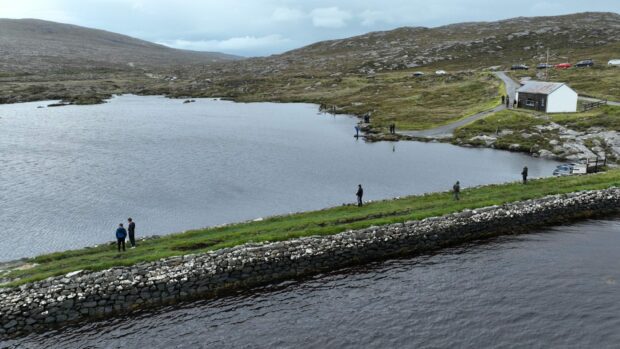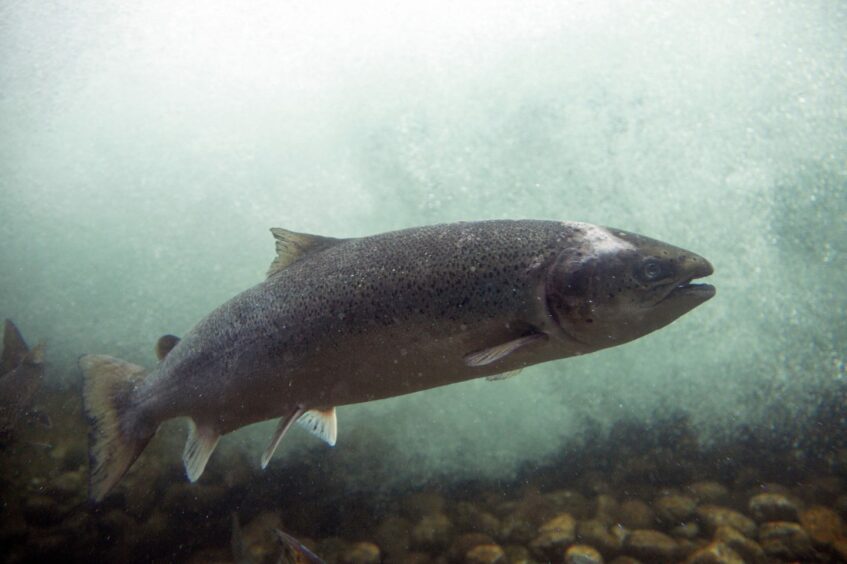A Victorian dam on the Western Isles has been saved from the “brink of collapse” thanks to funding from Scottish salmon farmers.
Fincastle Dam in West Harris has been saved from ruin to help support the restoration of wild salmon populations.
Constructed in the 1890s, the dam on the western bank of Loch Fincastle sprung a leak a year ago. The damage put the local wild salmon population – who are supported by the dam – at risk.
The Fincastle Dam project was awarded £35,000 in May this year by a Salmon Scotland-funded scheme.
It now has a steel spine down its centre which has helped ensured the integrity of the wall which will preserve it “for generations to come”.
After the funding for Fincastle Dam, the scheme has been praised by the West Harris Trust and Borve Lodge Estate.
In a joint statement, a spokesman said: “Working on this project has been very rewarding for both West Harris Trust and Borve Lodge Estate and will certainly lead to closer collaboration in the future.
“The Wild Salmonid Support Fund offers a real opportunity for struggling fisheries in Scotland to protect and improve their precious wild salmon ecosystems and build community ties in the process.”
Shows what can be achieved by re-investing in local communities
Due to climate change and rising water temperatures, wild salmon and sea trout numbers have been in decline on the east and west coasts of Scotland for several decades.
Salmon Scotland, the trade body for farm-raised salmon funds a £1.5 million Wild Salmonid Fund which is managed by Foundation Scotland.
Tavish Scott, chief executive of Salmon Scotland, said: “The success of this restoration project is fantastic news, and will ensure this historic dam is preserved for generations to come.
“Salmon farmers have a shared desire to address the decades-long decline in wild salmon populations, caused by climate change and deforestation.
“By supporting community-led projects to restore our rivers and habitats we are playing our part in reversing the global decline in wild salmon numbers.
“Salmon farms are proud to be making this financial contribution, which shows what can be achieved when the money we create is reinvested in local communities and not sent to quango coffers in Edinburgh.”


Conversation